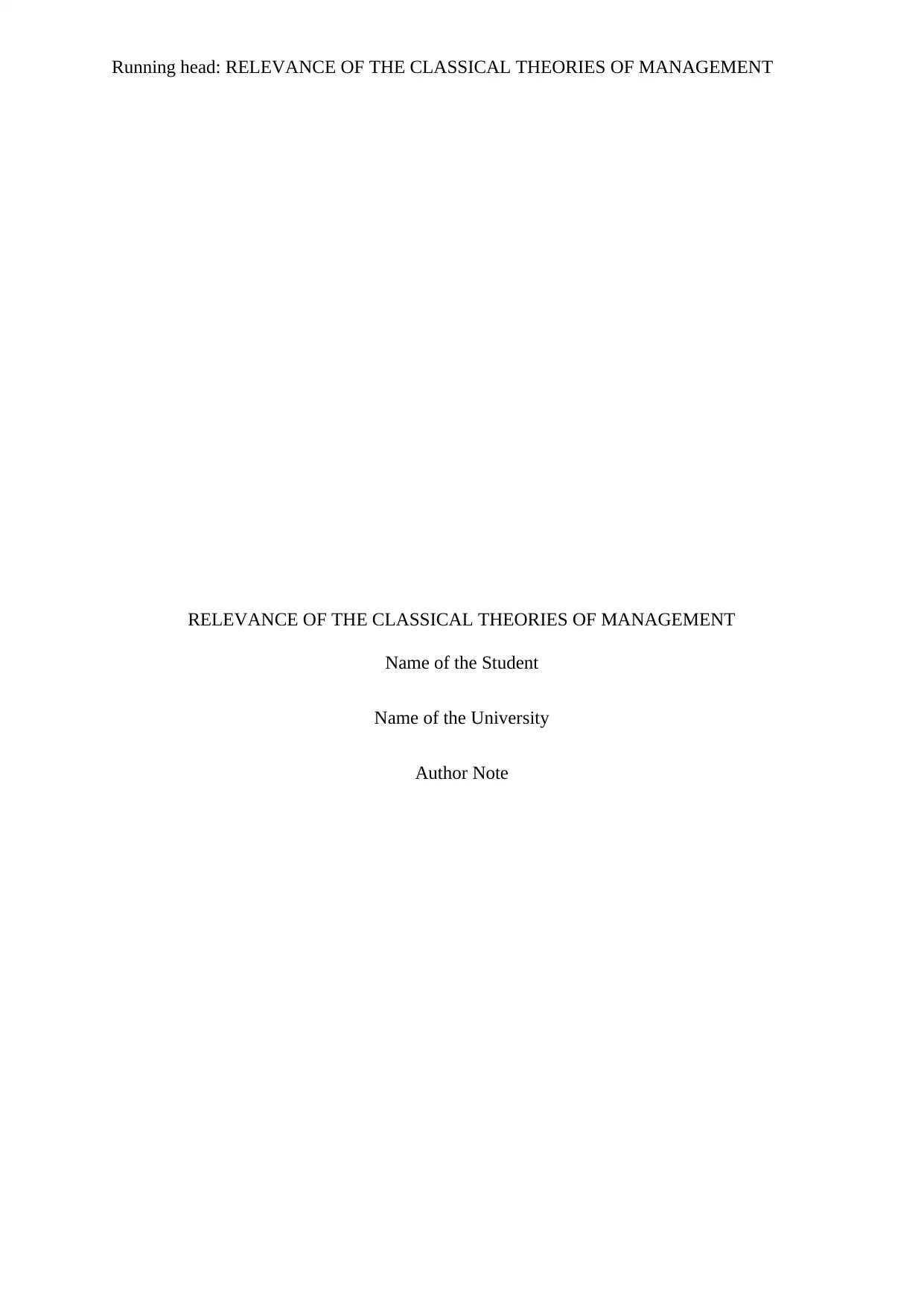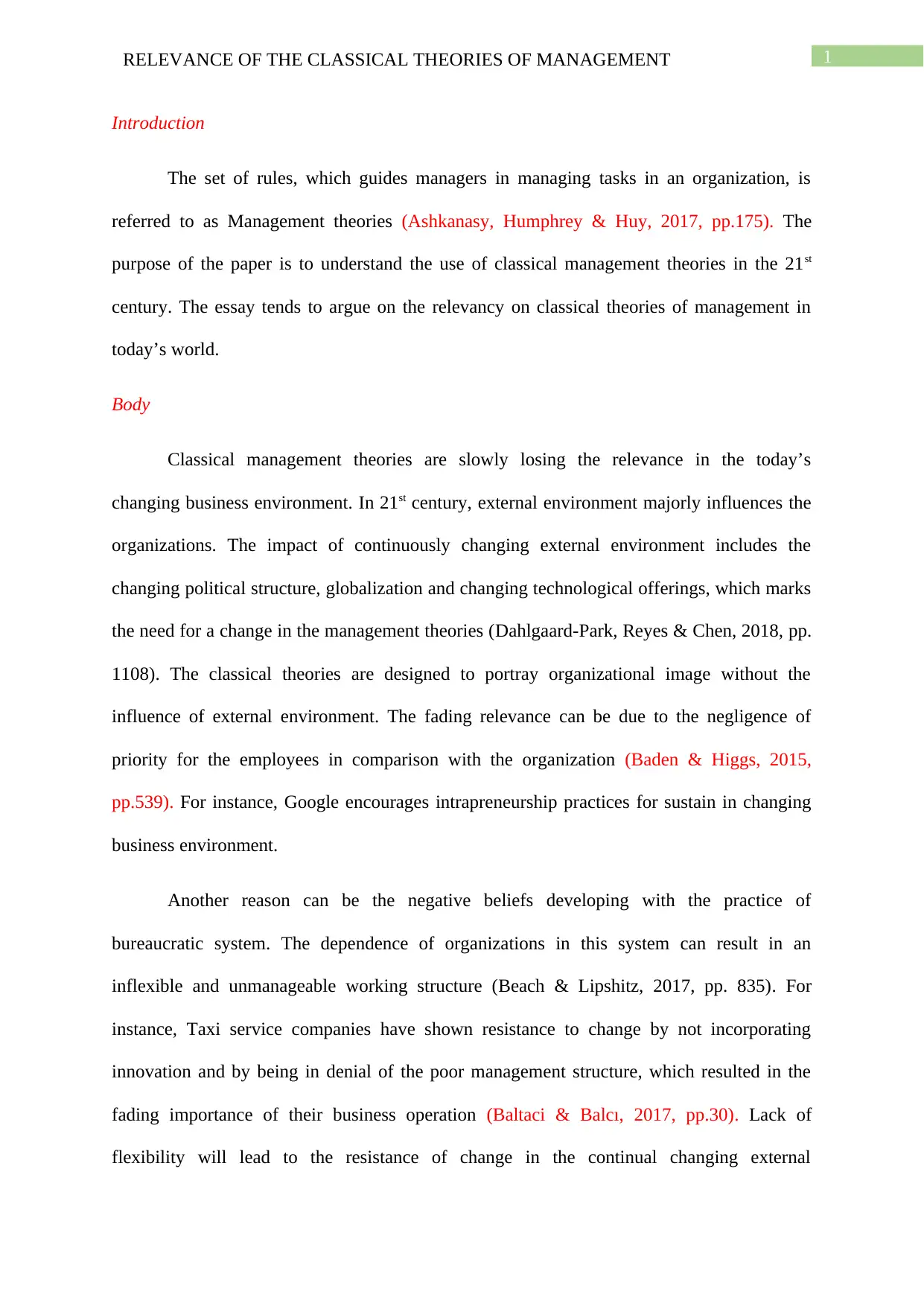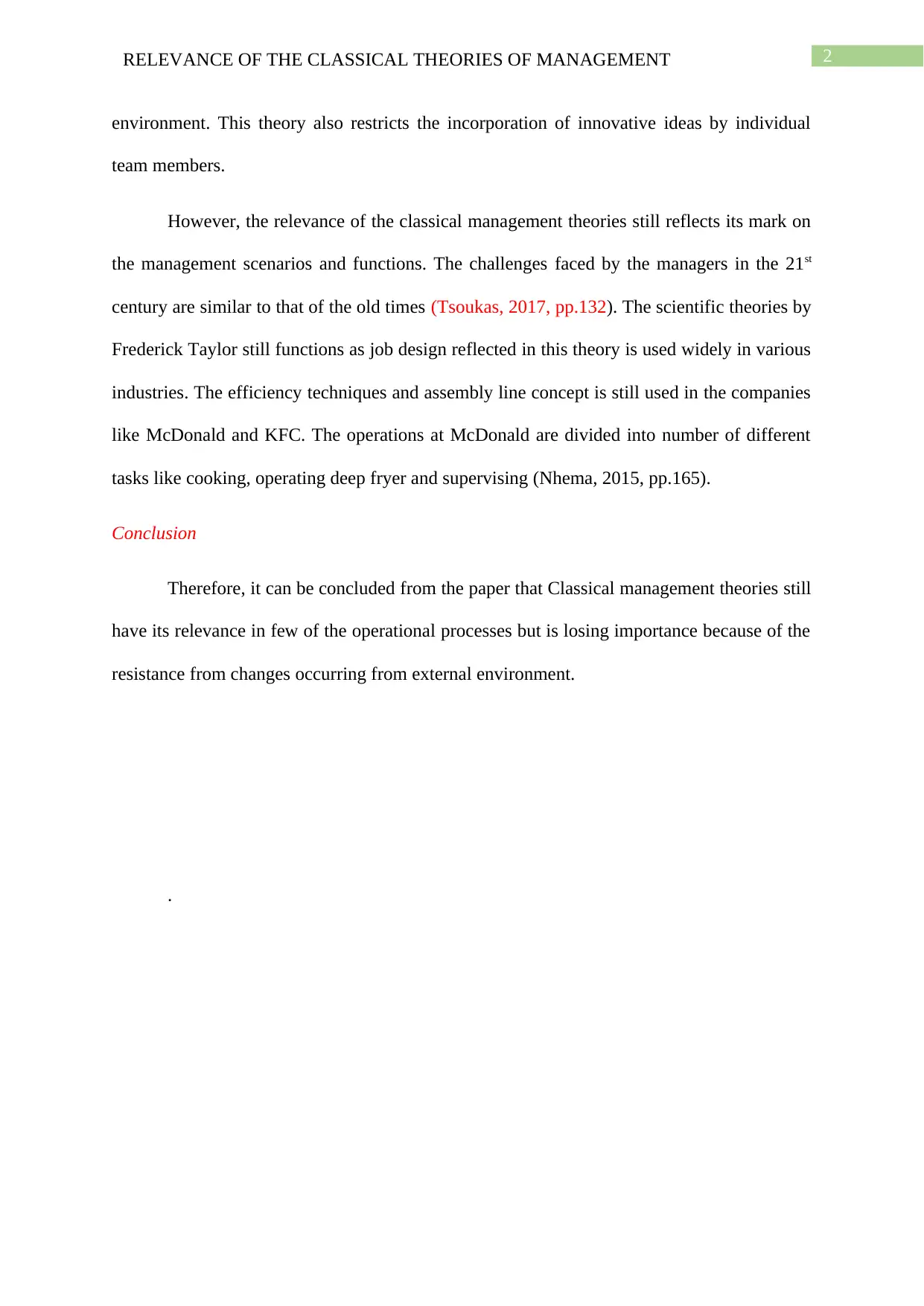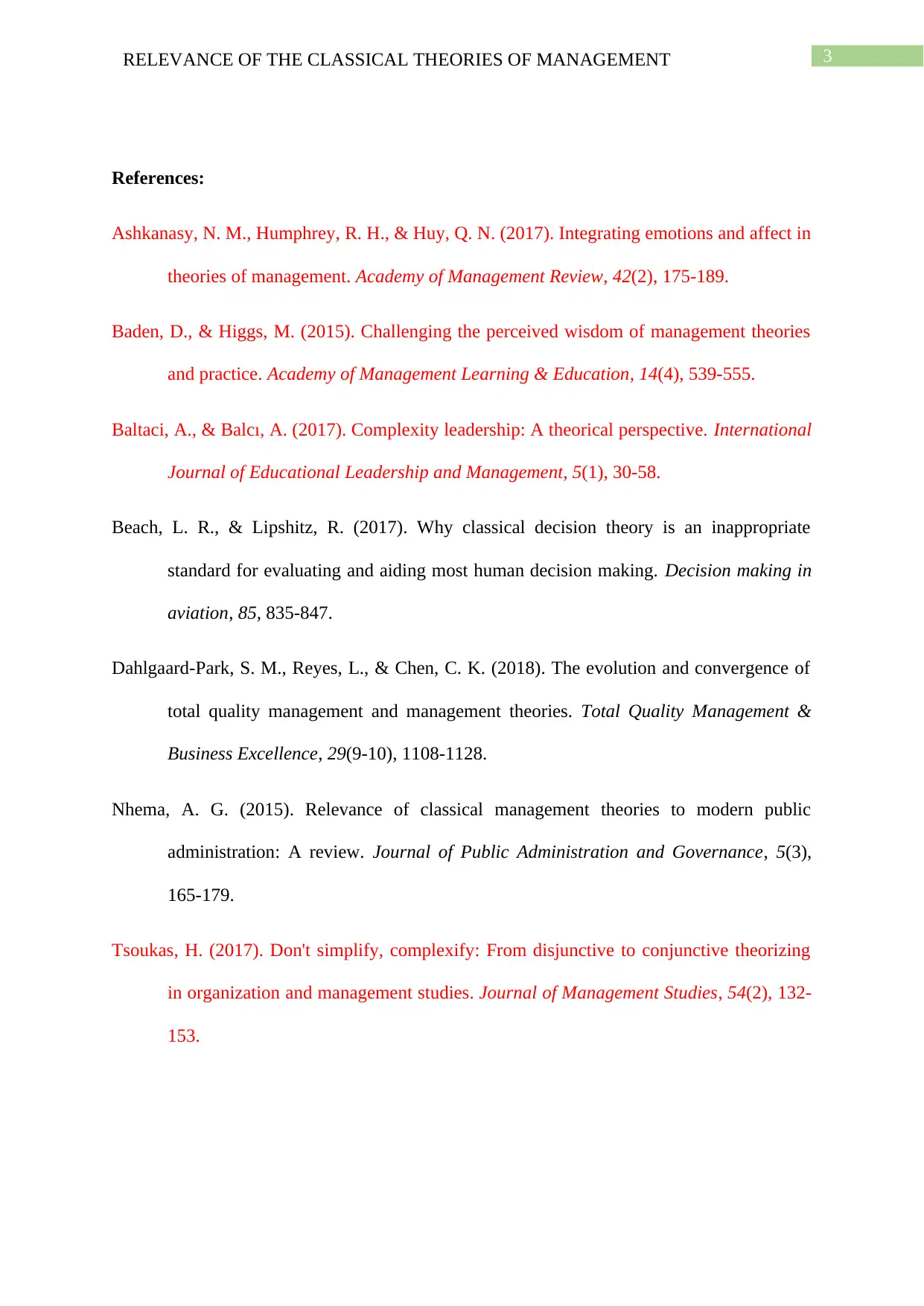MGF1010 - Assessing the Relevance of Classical Management Theories
VerifiedAdded on 2023/04/07
|4
|633
|84
Essay
AI Summary
This essay examines the relevance of classical management theories in the 21st century, arguing that while they are losing importance due to the rapidly changing external environment, particularly the influence of globalization, technological advancements, and political shifts, certain aspects still hold value. The classical theories' focus on organizational structure without considering external factors and their neglect of employee priority contribute to their declining relevance. The bureaucratic system's inflexibility and resistance to innovation further diminish their applicability. However, the essay acknowledges that some principles, such as Frederick Taylor's scientific management and efficiency techniques used in industries like McDonald's and KFC, remain relevant in operational processes. The essay concludes that while classical management theories retain some value in specific operational areas, their overall importance is diminishing due to their resistance to change and the dynamic nature of the modern business environment. Desklib offers a platform to explore this essay further, alongside a wealth of study resources including past papers and solved assignments.
1 out of 4








![[object Object]](/_next/static/media/star-bottom.7253800d.svg)